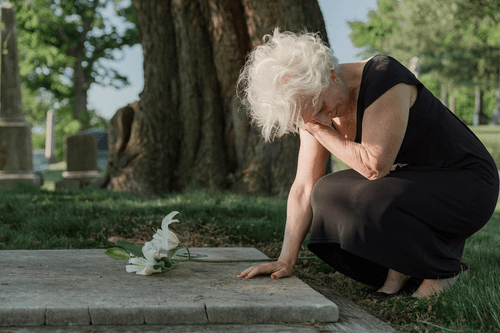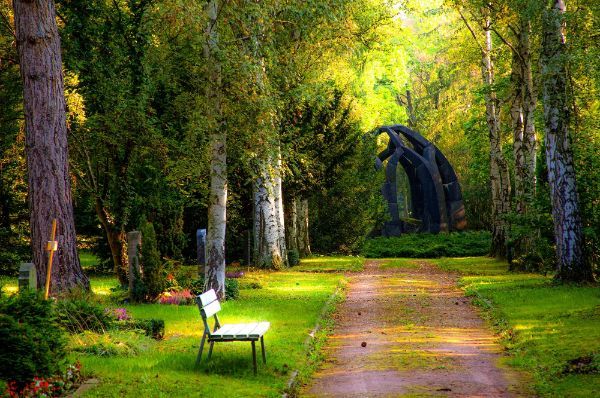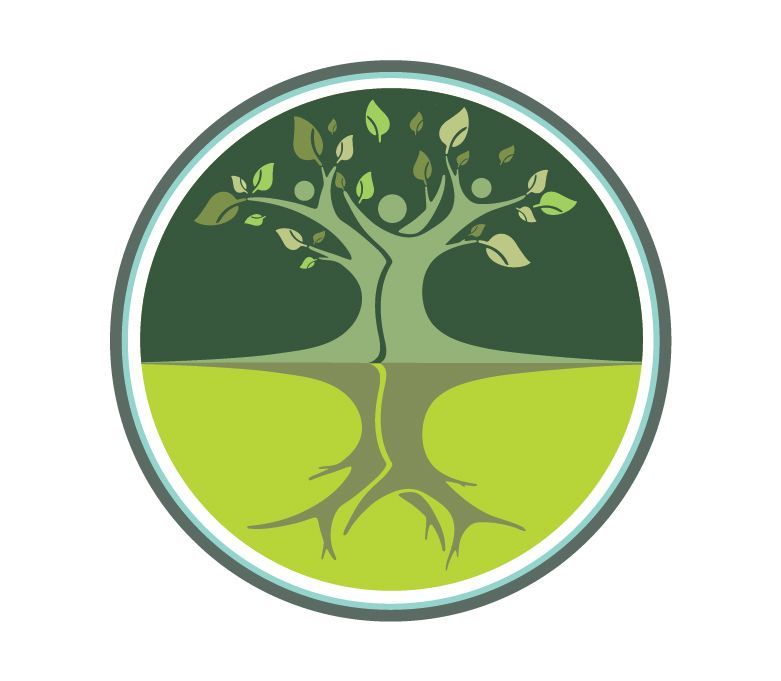A Valuable Gift for Your Family
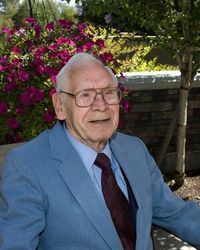
Robert Hayek (1912-2008)
Anyone who experiences the unexpected death of a loved one, someone closely enough related that it becomes their responsibility to deal with the disposition of the body, payment of bills, and distribution of the estate, knows what a stressful and bewildering experience that can be. Sooner or later each of us, by our own departure, will create that sort of crisis in the lives of our family or friends. Similar challenges occur when a loved one is disabled, especially if the disability prevents them from providing guidance about their finances, the type of care they want, and their desires for the care or distribution of their property.
In my family, I was grateful to have the guidance of the People’s Memorial Association in preparation for the deaths of my mom in 2006 and my dad and aunt in 2008. Several years before their deaths I had enrolled my parents as members of People’s Memorial Association (based in Seattle) and my aunt in the Oregon Memorial Association (since she lived in Oregon), and together we had completed the recommended planning forms.
My family members cooperated in completing the forms and sharing their preferences with me. There was only one conflict that arose with my parents. My mom wanted my dad to be buried next to her in the family cemetery plot in Portland, OR. My dad wanted to be cremated with his remains placed in a memorial wall at his church. My mom was furious when she heard that, so I closed the door and continued the conversation with my dad in private, realizing that the conflict might reoccur at a later time.
The issues were a little different with my aunt. Her husband had died in 1980. At the time of his death, the funeral home had persuaded her to pre-pay for her own funeral in the amount of $7000. I assume that was approximately what she had paid for my uncle’s arrangements. My aunt had the cancelled check, a signed written contract regarding the arrangements, and a partially completed worksheet regarding the services she wanted. She was very clear about which funeral home should be used and that it had already been paid for. I was grateful she shared this information with me and made a note of where I’d find the documents when the need arose.
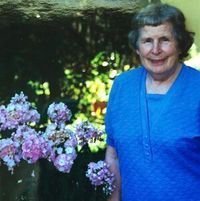
Marion Hayek (1917-2006)
Several years after that conversation with my aunt and over 20 years after the death of my uncle, it occurred to me that checking with the funeral home about my aunt’s pre-paid services might be a good idea. I gathered up the relevant documents provided by my aunt, as well as the General and Durable Power of Attorney she had given to me, and went to see the funeral director at the facility she said our family always used. The reason we always used this particular funeral home, as explained to me, was that my aunt had gone to school with the son of the owner. Needless to say, the son of the owner was long gone, and the funeral home had been bought by a national firm that has been gradually acquiring family-owned funeral homes all across the country. At my appointment I said I was there on behalf of my aunt, who had pre-paid for services, and I wanted to verify what their records showed concerning the services to be provided. The funeral director spent a few minutes checking his records and told me they had no record of such an account or payment. I was stunned and temporarily speechless. I had not expected this at all. The gentleman then started giving me a sales pitch for setting up a new pre-paid plan, without even bothering to ask why I thought my aunt already had an account there.
I let the salesperson continue his pitch for a while, thinking about what my next action would be. Then I reached into my document folder and brought out the cancelled check and contract. Without an apology or even skipping a beat in his speech, he modified what he was saying to suggest that would not be enough money at current prices and I still needed a new contract. I managed to get out of there shortly afterwards, giving myself some space and time to overcome the shock of this conversation and to decide what to do next.
After re-reading the contract my aunt had entered into, I learned it had been set up through the services of an insurance company. When I contacted the insurance company, I was able to arrange to cash in the policy and even receive a small amount of interest for my aunt. What a relief when that check came in! What a valuable lesson I had learned from this encounter with my aunt’s “favorite” funeral home.
One of the most valuable gifts you can give your family is the gift of documents, knowledge of how to use the documents, and discussion regarding your preferences. A “fire drill” to practice finding and using the documents would also be a good idea.
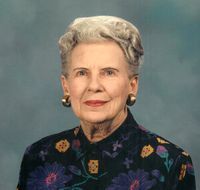
Edith Inches (1906-2008)
I had an early experience with disability and death problems when I was in high school. My dad’s uncle and aunt, became disabled and my father was contacted to help out. My father had no preparation for this and no useful documents. The result was two expensive guardianships, followed by the death of both relatives, a fight over how expensive a casket to have and then a fight over who should be the estate administrator and the manner in which to distribute the estate. These disputes generated substantial costs and ill will that continues to this day.
I became familiar with People’s Memorial Association back when I was a young attorney in private practice. A friend’s husband died in a tragic drowning accident, in which he had managed to save his young daughter but not himself. When my friend asked me to handle her husband’s estate, she told me how helpful People’s Memorial Association had been regarding funeral arrangements. She was so pleased with their help that I joined the organization myself and have advocated use of their services ever since.
People’s Memorial Association was founded in 1939 as an alternative to the high prices and predatory sales practices of the funeral industry as it existed at that time. PMA offers affordable funeral services that honor the deceased’s social and spiritual values. It still exists today and it has expanded its many services, while retaining wide respect for its work, both from members and the public.
In regard to prices, cremation services through PMA cost about $800, as compared to the $6000 price tag the National Funeral Directors Association website reports as the median cost of those services in the United States. For those wishing burial, PMA prices are from $1200 to $2900, depending on the services requested, while the National Funeral Directors Association reports a median price of over $7000. None of these figures includes cemetery expenses which are handled separately. Note: you can review the wide range of prices charged for these services in the State of Washington by reviewing the price survey information on the PMA website.
People’s Memorial not only offers good prices for their services, they also offer free information and a promise that their funeral homes will never pressure a family to purchase items they don’t want or need. They host seminars called Ducks in a Row to help members with planning. Their website contains lots and lots of information and useful forms and staff is available to answer questions on the phone.
The valuable gift you can give your family includes:
Completed Documents – including those listed on the PMA website.
Knowledge – of how to use the documents and where to go for help.
Discussion – about your preferences that will help your family understand why you completed the forms the way you did and help quell later conflicts among family members, some of whom may not want to follow your instructions.
The discussion element of this family gift is important. For two years I was employed as Executive Director of People’s Memorial. In my job I heard many stories, such as these:
A PMA member carefully filled out all the recommended forms and posted a note on her refrigerator to alert her family to the paperwork laid out on the kitchen counter. However, her death occurred in the hospital and the hospital phoned the family for their funeral home preference. She was already at the funeral home and arrangements agreed to before the family visited her home and found her documents, which provided different instructions. A family discussion well before she became ill could have avoided this problem.
A family member called PMA one day to explain that they knew their father wanted cremation and that he was a longtime member of PMA, but they believed he changed his mind in his later years and they intended to have him buried instead, because that was the practice advocated by their religion. I took this call and knew the family. The conversation made me sad and reminded me of how important it is to talk with family members, preferably more than one, to assure them that what you put on your paperwork was what you really wanted them to do. One of the tools available to help avoid this problem is the Designated Agent form. It is now possible to designate a particular person, whom you are confident will fulfil your wishes, as the person authorized to make your cremation or burial arrangements.
Another phone call was from a person distressed that PMA had a higher price than others he had seen advertised for cremation services. I carefully explained the various services offered by People’s Memorial, which made it a desirable option, even if another company offered what appeared to be a better price. Those PMA benefits included honest answers to all questions, with no attempt to sell extra services, comprehensive prices, which included transportation, storage, needed containers, and educational materials and forms, which can be used to be better prepared for the next family death. The gentleman called back after attempting to do business with the lower cost facility. He confirmed that everything I had told him was correct. Many items were not included in the quoted price and he was pressured to pay for additional items that ran up the cost.
My experience as a PMA employee was a great help to me when my mother died in 2006 and my aunt and father in 2008. It was a tough couple of years, but the plans for disposing of their bodies went smoothly, and mostly according to their requests.
We were able to easily fulfill my mom’s wish to be buried in the family cemetery plot in Portland, even though she died in Redmond, WA. For a modest additional fee the funeral home drove her and her casket to Portland, where I met them at the cemetery, and we had a small graveside service. A local minister was present, as requested by my dad.
When my aunt died, we used a funeral home recommended by the Oregon Memorial Association instead of the funeral home my aunt had requested. The change of ownership and the attempt to extract excessive charges persuaded me we could not use the funeral home originally requested. Since the Oregon Memorial Association prices were so low, I looked for ways to increase the costs, since she had wanted to pay $7000. I upgraded the casket, bought flowers and refreshments, paid cemetery and marker expenses, and took the family out to eat after the service, and still had money left over.
When my dad died, I knew he wanted to be cremated and placed in the memorial wall at his church. Since my mom was already deceased, she was not in a position to object. However, my dad had purchased a mausoleum crypt, where his first wife was interred. There was also the unused plot in the cemetery where my mom was buried. Since the cremation arrangements through PMA had been relatively inexpensive, I decided that I would honor his two wives by putting markers in the mausoleum and next to my mom at the cemetery, in addition to the marker on the church memorial wall, so it now appears that he has three final resting spots.
Joining People’s Memorial costs $50 for a lifetime membership. If you are a Washington resident, please consider joining and taking advantage of their resources. Your family will be glad you did. If you live in another state, check the website of the Funeral Consumers Alliance to see if there is a similar organization in your area.
Please consider
subscribing to my blog.
Carolyn Hayek
Links
